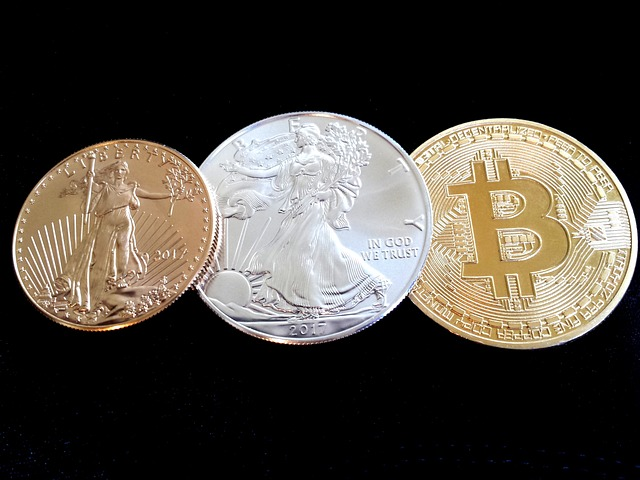In the context of Crypto trading, it’s crucial to distinguish between Commodity vs. Security. Securities represent ownership in a company, while Commodities are tangible goods or financial instruments traded on exchanges. Cryptocurrencies are often classified as Commodities rather than Securities by regulatory bodies like the SEC (the Securities and Exchange Commission) and the Commodity Futures Trading Commission (CFTC).
This distinction affects Crypto tokens regulatory oversight, market dynamics, and trading strategies. Securities are subject to strict regulations, while Commodities, including Cryptocurrencies, are less regulated and more volatile. Understanding these differences is essential for navigating regulations, analysing market trends, and developing effective trading strategies in the Crypto space.
The Howey Test and its relevance to Crypto
The Howey Test, stemming from SEC (the Securities and Exchange Commission) v. Howey Co. (1946), assesses whether transactions qualify as investment contracts under laws on Commodities and Securities markets. Criteria include an investment of money, in a common enterprise, with an expectation of profits solely from others’ efforts. Regulators, like the SEC, use this test to evaluate Cryptocurrency offerings by a Crypto exchange. If tokens offered meet Howey Test criteria, they may be subject to securities regulations, including registration requirements. The test ensures regulatory oversight in the Crypto space, determining compliance with laws and protecting investors while promoting market integrity.
One such regulation is the Commodity Exchange Act (CEA), a federal statute that regulates the trading of Commodity Futures and Options in the United States, aiming to prevent fraud, manipulation, and abusive practices in Commodity markets.
What is the difference between a Security and a Commodity?

The difference between a Security and a Commodity lies in their fundamental nature and regulatory treatment. Securities represent ownership in a company or entity and are subject to stringent regulations aimed at investor protection.
They include Stocks, Bonds, and Options. In contrast, Commodities are tangible goods or raw materials traded on a centralised exchange (until now), with prices influenced by factors like supply and demand dynamics, geopolitical events, and market speculation. They include goods like Gold, Oil, and agricultural products.
While Securities are governed by strict regulatory frameworks, Commodities trading is generally less regulated, focusing more on market integrity and fair trading practices. Understanding this distinction is crucial for investors and traders navigating financial markets and complying with relevant regulatory requirements.
The case for Crypto as a Commodity
Cryptocurrencies, like Bitcoin and Ethereum, possess traits akin to Commodities. They’re tradable assets, lack legal tender status, and operate in decentralised networks. Regulators, such as the US CFTC, classify certain Cryptocurrencies as Commodities due to their market functions and fungibility.
Fungibility refers to the interchangeability of units within a Currency, where each unit is identical and interchangeable with others. In Cryptocurrencies, digital assets like Bitcoin, fungibility ensures that each unit holds the same value and can be exchanged without distinction, ensuring transactional anonymity and maintaining market liquidity. And as you can gather, with a virtual Currency this definition or distinction is challenging.
This designation subjects them to Commodities laws, not Securities regulations, acknowledging their role in digital economies. Cryptocurrency market dynamics, influenced by factors like supply and demand and technological advancements, further align them with Commodities. This classification underscores their status as tradable assets and facilitates regulatory oversight in global financial markets.
Stablecoins: a Commodity perspective
Stablecoins, pegged to stable assets like fiat Currencies or Commodities, offer price stability amidst Cryptocurrency market volatility. From a Commodity perspective, they resemble digital representations of traditional assets, facilitating easier trading and minimising exposure to Crypto market fluctuations.
Regulatory bodies like the US Commodity Futures Trading Commission (CFTC) often view stablecoins as Commodities, subjecting them to Commodities regulations. Stablecoins play a vital role in Cryptocurrency ecosystems, bridging the gap between traditional finance and digital assets while providing stability and liquidity for traders and investors.
The case for Crypto as a Security
The Crypto as a Security argument revolves largely around Initial Coin Offerings (ICOs), where tokens are sold to raise funds for projects. These tokens often represent ownership or promise of future profits. The SEC regulates securities to protect investors, leading to debates about whether ICOs fall under its purview.
Here are some coins that are considered Securities:
- Ripple (XRP): Ripple Labs, the company behind XRP, has faced legal action from the SEC, which alleges that XRP sales constitute unregistered Securities offerings.
- Telegram (GRAM): The SEC filed a lawsuit against Telegram alleging that its initial coin offering (ICO) for the GRAM token violated laws.
- EOS (EOS): Block.one, the company behind the EOSIO software, settled with the SEC over allegations that its ICO constituted an unregistered Securities offering.
- Centra (CTR): The SEC charged Centra Tech Inc. and its founders with conducting a fraudulent ICO for the Centra token, which it deemed a Security.
NFTs and Security classification
The classification of NFTs as Securities is debated, considering investor expectations and profit motives. Some argue NFTs, representing unique digital assets, lack the profit-sharing or investment features of Securities.
However, if marketed with promises of future returns, they may fall under Securities laws, warranting regulatory scrutiny.
Regulatory implications and challenges
Cryptocurrency regulation faces jurisdictional complexities, classification uncertainties, and the challenge of investor protection. Compliance burdens, technology adaptation, and global reach further complicate oversight. Balancing innovation and risk mitigation requires collaborative efforts among regulators, industry members, and policymakers to develop adaptable regulatory frameworks.
The future regulatory landscape for Crypto
The future regulatory landscape for Crypto is poised for evolution, navigating jurisdictional complexities, investor protection, and technological advancements.
Collaboration between regulators, industry, and policymakers is vital to develop adaptable frameworks that balance innovation with risk mitigation and ensure market integrity and investor confidence in the digital asset space.
Why classification matters: impacts on the Crypto ecosystem
Cryptocurrency classification impacts trading rules, taxation, and compliance burdens. Clear classification fosters market integrity, regulatory compliance, and investor confidence, which is crucial for Cryptocurrency development and adoption. It ensures legal clarity, facilitating innovation and investment in the digital asset space, shaping its future trajectory.
Decentralisation and regulatory evasion
Decentralisation in Cryptocurrencies challenges traditional regulatory frameworks, enabling regulatory evasion. Without central authorities, enforcing compliance becomes difficult, potentially facilitating illicit activities like money laundering and tax evasion.
Balancing decentralisation with regulatory oversight is essential to maintain market integrity and investor protection in the digital asset space.
The path forward: seeking clarity in Crypto classification
The debate over Cryptocurrency regulation is ongoing, highlighting the need for clear guidance to address jurisdictional challenges and investor protection concerns. Industry collaboration with regulators is crucial to developing adaptable frameworks that balance innovation with risk mitigation, ensuring market integrity, and fostering investor confidence in the digital asset space.
Global perspectives on Crypto regulation
The US wrestles with classifying Crypto as Securities (SEC) or Commodities (CFTC), leading to uncertainty. The EU’s MiCA takes a clearer stance, creating categories (payments, securities) for Crypto assets, offering a more stable regulatory landscape.
Conclusion
In conclusion, navigating the Crypto landscape requires clear regulatory guidance to address jurisdictional complexities and investor protection. Industry collaboration with regulators is key to developing adaptable frameworks that balance innovation with risk mitigation, ensuring market integrity and investor confidence in the evolving digital asset space.
Is Bitcoin a Security or a Commodity?
According to the CFTC, Bitcoin is classified as a Commodity.
Is Ethereum a Commodity or a Security?
The SEC considers Ethereum a Commodity after it was permitted to issue an ETH Futures ETF and ETH Futures.
Is XRP a Commodity or a Security?
Although XRP's status was contested, recently the SEC indicated XRP is in fact not a Security, but a Commodity.
What is the difference between a Security and a Commodity?
A Security generally gives you a stake in a certain asset - usually a company. A Commodity gives you ownership of a tangible asset or something that has a stable value across all its units i.e. a bushel of corn, or a single Bitcoin not a changing value - so the bushel size is always the same as is the single Bitcoin.
The content provided here is for informational purposes only. It is not intended as personal investment advice and does not constitute a solicitation or invitation to engage in any financial transactions, investments, or related activities. Past performance is not a reliable indicator of future results.
The financial products offered by the Company are complex and come with a high risk of losing money rapidly due to leverage. These products may not be suitable for all investors. Before engaging, you should consider whether you understand how these leveraged products work and whether you can afford the high risk of losing your money.
The Company does not accept clients from the Restricted Jurisdictions as indicated in our website/ T&C. Some services or products may not be available in your jurisdiction.
The applicable legal entity and its respective products and services depend on the client’s country of residence and the entity with which the client has established a contractual relationship during registration.




